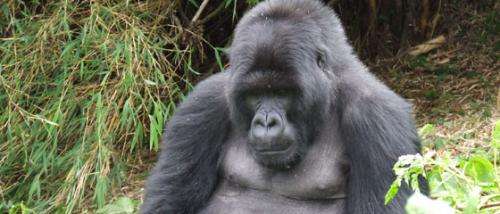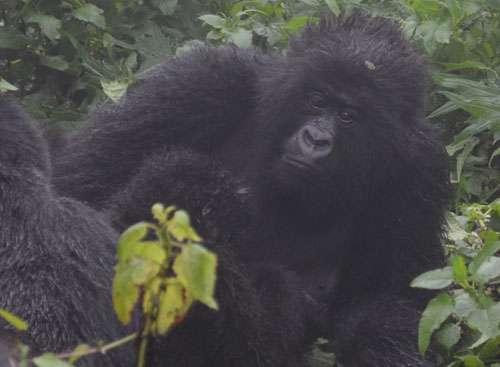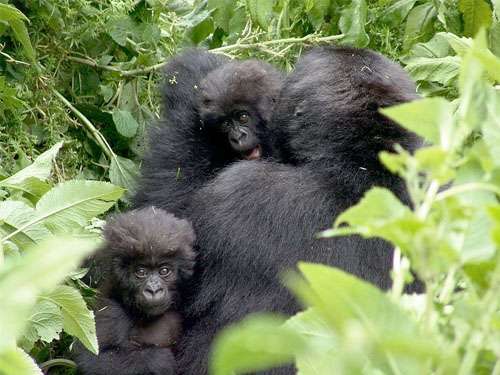Trekking tourists to become wild gorilla guardians

An online awareness raising campaign has been launched in a bid to minimise the risk of disease transmission from human to gorilla during treks to see these magnificent great apes in the wild.
The close genetic relationship between humans and gorillas means that gorillas can be susceptible to many of the infectious diseases that affect people – but without the immunity humans have built up, meaning even the smallest of sniffles can have tragic consequences.
The International Gorilla Conservation Programme (IGCP) and Wildlife Friendly Enterprise Network (WFEN) have worked together to develop the new tool – known as Gorilla Friendly Pledge – that outlines ten simple things tourists can do before, during and after their gorilla visit, serving to benefit visitors and gorillas alike.
The launch of Gorilla Friendly Pledge coincides with peak gorilla trekking tourist season and Kwita Izina, the annual baby gorilla naming ceremony taking place in Rwanda on 1 July. By publishing the guidelines, Gorilla Friendly Pledge will help safeguard gorillas by minimising the risk of disease transmission and preventing illness or behavioral change as a result of exposure to people.
"Conscientious mountain gorilla tourism has contributed to one of the world's true conservation success stories. By demonstrating that gorillas and their forest habitat can provide real and lasting benefits to people and economies, local communities have become their guardians," states Anna Behm Masozera, Director of the International Gorilla Conservation Programme, a coalition between Fauna & Flora International (FFI) and WWF.

"But we cannot be complacent and now is the time to better equip tourists with the tools to become gorilla guardians as well. This Pledge aims to empower tourists visiting any of the gorilla subspecies in the wild across Africa with information as to the regulations in place for gorilla tourism to make these often once-in-a-lifetime experiences even more valuable – to their experience and to the gorillas."

The content of the Pledge originates from existing visitation rules and regulations defined by the leading experts on great apes and outlined in the IUCN's Best Practice Guidelines for Great Ape Tourism.
Provided by Fauna & Flora International



















